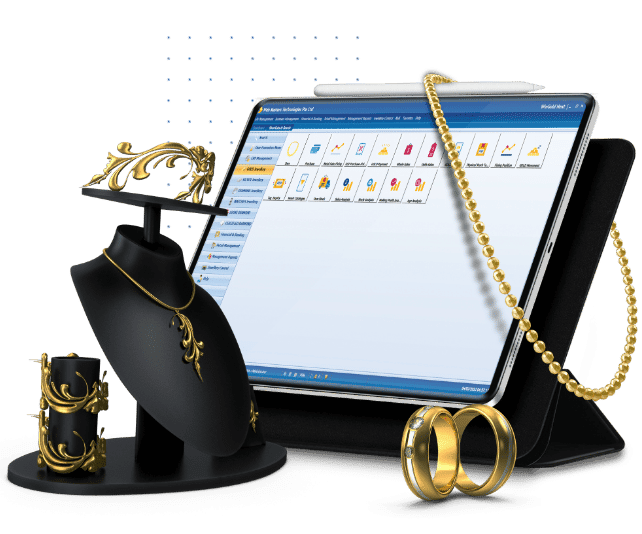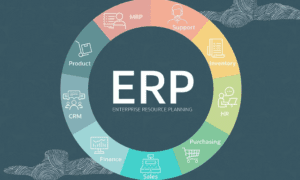Jewelry wholesalers operate in a highly competitive, detail-oriented industry where precision, speed, and efficiency can make the difference between profitability and missed opportunities. Managing large inventories of precious metals and gemstones, monitoring fluctuating market values, and keeping customer relationships strong all require specialized tools that go beyond spreadsheets or basic accounting systems. This is where enterprise resource planning (ERP) software steps in. But what is the best ERP for jewelry wholesalers, and what features should you look for when choosing a solution? In this guide, we will explore the essentials of ERP for jewelry wholesalers, the challenges it addresses, and the top options available today.
Why Jewelry Wholesalers Need ERP
Wholesalers in the jewelry industry juggle multiple responsibilities. They must track raw materials like gold, silver, diamonds, and colored stones, manage complex pricing structures, ensure compliance with industry standards, and deliver consistent customer service. Unlike many other wholesale businesses, jewelry distributors deal with items that are high in value, small in size, and subject to rapid market fluctuations. Without a reliable ERP, it is easy to lose track of stock, misprice goods, or fail to meet customer expectations. The best ERP for jewelry wholesalers provides a centralized system to manage supply chains, inventory, customer relationships, and finances in one place. By integrating data across departments, an ERP ensures greater accuracy and allows managers to make informed decisions in real time.
Key Features of ERP for Jewelry Wholesalers
When evaluating ERP systems, jewelry wholesalers should focus on solutions that offer industry-specific features. These may include:
- Inventory management for high-value items: Ability to track metals and stones by weight, carat, and purity with serial or batch numbers for accurate traceability.
- Flexible pricing tools: Support for fluctuating commodity rates and customer-specific pricing contracts.
- Customer relationship management (CRM): Integration to monitor wholesale clients, order histories, and buying patterns.
- Multi-channel sales integration: For wholesalers selling through e-commerce, B2B portals, or marketplaces.
- Compliance support: Tools for following anti-money laundering (AML) and hallmarking regulations.
- Reporting and analytics: Real-time insights into sales performance, margins, and inventory turnover.
- Integration with accounting and finance: Automating accounts receivable, payables, and tax calculations.
The best ERP for jewelry wholesalers balances these specialized needs with user-friendly interfaces and scalability for growth.
Common Challenges Jewelry Wholesalers Face Without ERP
Before selecting an ERP, it helps to understand the challenges wholesalers encounter when relying on outdated or manual systems. These include:
- Inaccurate inventory tracking leading to misplaced or unaccounted-for items.
- Slow pricing updates that cause lost profits when commodity prices shift.
- Limited visibility across departments, creating delays in decision-making.
- Poor customer management, resulting in missed sales opportunities or client dissatisfaction.
- Compliance risks due to inadequate record-keeping.
An ERP solution addresses these pain points by streamlining processes and providing transparency.
The Best ERP Options for Jewelry Wholesalers
Several ERP solutions stand out for jewelry wholesalers because they are tailored to the industry’s unique demands. Here are some of the most popular and effective platforms to consider:
- SAP Business One for Jewelry
SAP Business One is a widely recognized ERP for small to mid-sized businesses. With jewelry-specific add-ons, it becomes highly effective for wholesalers. It offers detailed inventory management, supports multi-currency transactions, and allows tracking of raw materials and finished goods. Its robust analytics make it a strong contender for wholesalers with global operations.
- Oracle NetSuite
NetSuite is a cloud-based ERP with advanced inventory and financial management features. For jewelry wholesalers, it offers real-time visibility into stock, supports complex pricing, and integrates easily with e-commerce platforms. Its scalability makes it ideal for growing wholesalers who need flexibility.
- Microsoft Dynamics 365
This ERP is known for its versatility and integration with other Microsoft products. Jewelry wholesalers benefit from its CRM, supply chain management, and customizable reporting. Dynamics 365 also integrates well with Power BI, offering deep insights into business performance.
- JewelMate ERP
Designed specifically for jewelry businesses, JewelMate ERP is tailored for wholesalers, retailers, and manufacturers. It includes modules for inventory control, sales tracking, repair management, and customer relations. Its specialization makes it one of the best ERPs for jewelry wholesalers who want a solution built entirely around their industry.
- ERPNext for Jewelry
ERPNext is an open-source ERP system with customizable modules for jewelry wholesalers. It supports multi-level BOMs (bill of materials), inventory tracking by batch, and accounting integration. Its affordability makes it appealing to smaller wholesalers looking for robust functionality without high licensing fees.
- Apprise ERP
Apprise ERP is built for wholesalers and distributors, including those in the jewelry sector. It excels in supply chain management, forecasting, and customer service. With its real-time inventory visibility, wholesalers can minimize errors and improve client satisfaction.
How to Choose the Best ERP for Jewelry Wholesalers
Selecting the best ERP requires evaluating your business size, budget, and goals. Here are some tips:
- Identify your biggest challenges: Is it inventory tracking, compliance, or customer management?
- Consider scalability: Choose an ERP that can grow with your business.
- Look for integration: Ensure compatibility with your existing e-commerce or accounting tools.
- Prioritize ease of use: A complex system may discourage adoption by your team.
- Check vendor support: Reliable training and customer service are crucial for smooth implementation.
By aligning the ERP’s strengths with your business needs, you maximize your return on investment.
Benefits of Implementing ERP in Jewelry Wholesale
The benefits of ERP extend far beyond streamlined processes. Implementing the best ERP for jewelry wholesalers can deliver:
- Greater efficiency: Automating manual tasks saves time and reduces errors.
- Improved profitability: Real-time pricing and cost management help protect margins.
- Enhanced compliance: Proper documentation reduces legal risks.
- Better customer relationships: CRM tools ensure personalized service for top clients.
- Data-driven decisions: Advanced reporting and analytics provide insights into growth opportunities.
These advantages create a competitive edge in an industry where precision and trust are paramount.
Future Trends in ERP for Jewelry Wholesalers
The jewelry industry is evolving, and so is ERP technology. Wholesalers can expect future ERP systems to include:
- AI-powered analytics for better forecasting and demand planning.
- Blockchain integration to improve transparency and authenticity in the supply chain.
- Mobile accessibility to allow teams to manage operations from anywhere.
- Sustainability tracking to meet rising consumer demands for ethical sourcing.
Staying ahead of these trends ensures long-term success and adaptability.
Conclusion
The jewelry wholesale industry requires precision, transparency, and agility. ERP software is not just a tool but a necessity for wholesalers who want to remain competitive in a dynamic market. Whether you choose an industry giant like NetSuite, a specialized solution like JewelMate, or an open-source option like ERPNext, the key is to match the system to your unique business needs. Ultimately, the best ERP for jewelry wholesalers is the one that aligns with your processes, enhances efficiency, and supports sustainable growth. By carefully evaluating your options and investing in the right solution, you can streamline your operations, strengthen customer relationships, and build a foundation for long-term success in the jewelry industry.

























